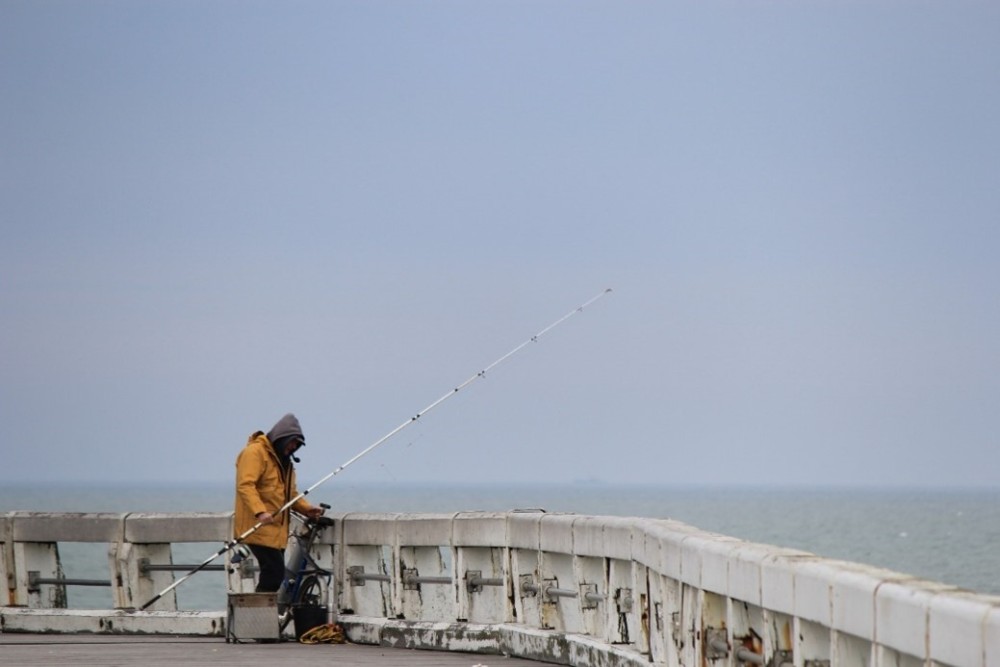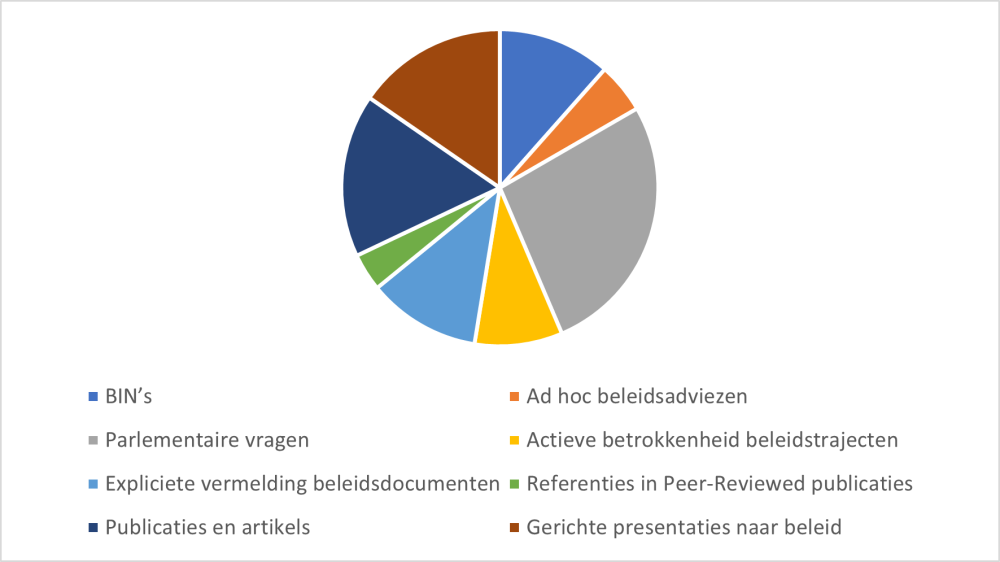Recreational sea fishing includes all leisure fishing at sea or along the coastline. Unlike commercial fishing, catches may not be sold. The fishermen themselves are not subject to catch reports, fishing licenses or permits. They are also a diverse group. Small craft with a series of rods on board or trawling for shrimp. But they also include anglers on the beach, a breakwater or a jetty. As are the many porters, horse fishermen in Oostduinkerke and fishermen doing passive beach fishing, with different types of nets anchored on the beach.
Until 2015, hardly anything was known about which leisure fishermen, where in Belgian waters, when, how many fish and shrimp were caught. This blind spot in knowledge caused a lot of suspicion, especially among professional fishermen. They accused recreational sea fishing of unfair, barely controlled competition. And, because no one had conclusive data, this suspicion could not be refuted or substantiated either.
That would change forever in 2015 with the launch of the RecVis project. Driven by the obligation at the European level to collect biological data on this leisure fishing, the VLIZ and ILVO worked out an extensive and original monitoring program for our country.

First, the LIVIS project, in collaboration with ILVO, mapped the number of vessels and fishing trips. A year later, the board members of well-known recreational sea fishing associations received an invitation to an information evening explaining what RecVis entails and what it can mean for the fishermen themselves. The evening proved to be a hit, after which many of those present signed up to actively contribute to the project. New to the approach was that most of the work was not done from an office space, but in the field ("on land, at sea, and in the air"). This created a lot of interaction with the target group and offered the researchers a unique view into the world of the - as it turned out - estimated 3,000 active recreational sea anglers. Today, some 400 recreational sea anglers are active on the RecVis platform. This online platform allows anglers to add their own information about their catches: what species they catch, the weight, what bait, what part of the catch is discarded, and so on. Thanks to this joint effort, the VLIZ and ILVO are now able to chart the total catch of the recreational sector (maximum 5% of the total landings, and therefore no competition to be feared from professional fishing), as well as the socio-economic importance of the sector (8.6 million EUR of added value). In addition, the initiative aims to reduce the use of fishing lead and to advise the government on this issue.

Recreational angler, Daniel Wintein: "Collaboration between science and recreational marine fisheries, and the continuation of the RecVis project will guarantee clarity on recreational fishery catches. To measure is to know."
The impact of this project can be felt on several fronts. First, the result has been positive for the fishermen themselves. A relationship of trust has been established with the scientists involved, which has lowered the threshold between citizens and science. Moreover, now that recreational sea anglers are more in the spotlight as a sector thanks to the RecVis project and with scientific data, they have gained a voice in policy-making. RecVis provides an annual report on the status of Belgian recreational sea fishing (9 policy briefing notes) and also formulates targeted ad hoc policy advice at the request of the authorities (4). For example, the data has contributed to the revision of certain regulations concerning sea bass. The policy impact of the project is also endorsed by the large number of parliamentary questions (21) that are directly related to the communicated results, as well as by the active involvement within various policy trajectories (7; e.g., regulations on share fishing) and the explicit mention in policy documents (9; e.g., VIRA). In addition, the results contributed to 3 international peer-reviewed publications, numerous other publications and articles both by VLIZ and external parties (e.g. angling magazines) (13), as well as targeted presentations regarding policy (12). Recently RecVis also explored avenues around the valorization of results in new research and innovation projects, such as EMODnet Biology/Human Activities, SUMES and the BAR Resilience Coastal Fleet.
Operator VLIZ, Thomas Verleye: "Through RecVis, recreational sea anglers can play an active role in collecting data and thus contribute to the development of evidence-based policy."
Finally, this project visibly strengthens the collaboration between citizen and science and demonstrates the added value of citizen science. Ideally, the VLIZ sees a continuation of RecVis, in order to map multi-year trends, and to get a more complete picture of the sector. The investment by Flanders through NDGP (153,000 EUR), the federal government (203,000 EUR and the Province of West Flanders (87,000 EUR), spread over six years, has proved particularly valuable. In any case, RecVis has already more than earned its spurs and led to a very positive trend change in the knowledge of recreational sea fishing in our country.